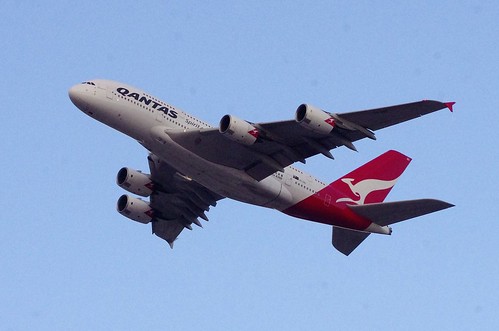Watchdog Group Accuses Qantas Airlines of Selling Thousands of Tickets for Already Cancelled Flights
Qantas #Qantas

An Australian watchdog group claims that Qantas, the country’s national airline, sold thousands of tickets for flights it had already canceled or had no intention of flying.
In a statement issued Thursday, the Australian Competition and Consumer Commission accused Qantas of engaging in deceptive actions by advertising tickets for over 8,000 flights the airline knew it would not run. The flights were offered between May and July 2022. It’s unclear at this time how Qantas benefited from these transactions.
In filings with Australia’s federal court, the ACCC reports that tickets remained on sale for as little as two weeks, and at most 47 days, after the itineraries were canceled. The cancellations were not due to weather or extenuating circumstances, but issues well within Qantas’ control. The changes resulted from “consumer demand, route withdrawals or retention of takeoff and landing slots at certain airports,” ACCC chair Gina Cass-Gottlieb said in the statement.
In their own statement, Qantas said they were taking the allegations “seriously” but would wait for their day in court to respond in detail. They did stipulate that the two months in 2022 “was a time of unprecedented upheaval for the entire airline industry.” Yet in August, Qantas reported record profits of $1.6 billion ($2.5 billion AUS) for the previous fiscal year. The company also received $1.7 billion ($2.7 billion AUS) during the pandemic from Australian taxpayers, an amount the company reported it will not be paying back.
During an interview with Australia’s public radio network on Friday, Cass-Gottlieb was seeking “a record penalty” of 250 million Australian dollars ($161 million) as a way of warning other companies against similar tactics. “This is going to be an important test for us. We consider [previous] penalties have been too low,” she said. “We are going to seek a penalty that will underline that this is not just to be a cost of doing business—it is to deter conduct of this nature.”